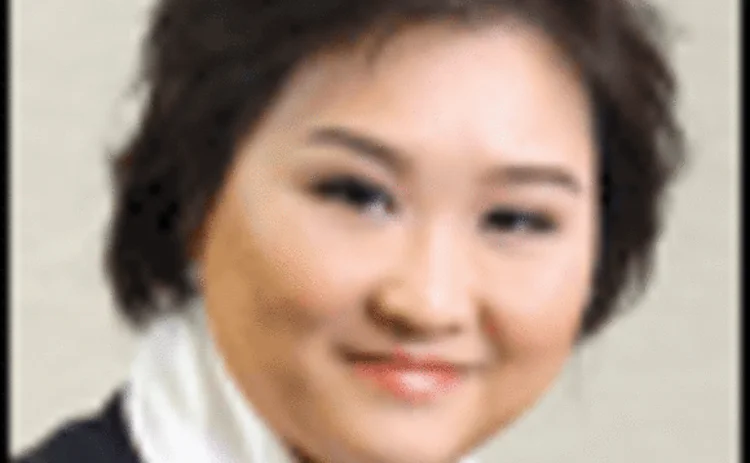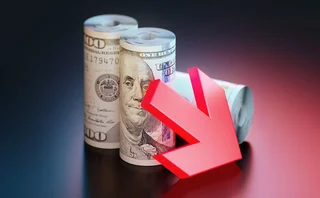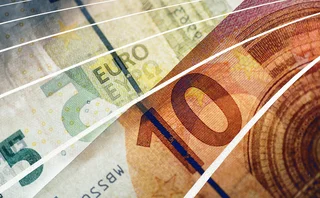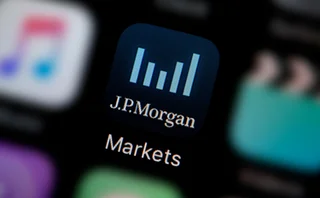
Liberalising life
The current round of liberalisation in Taiwan's insurance industry allows local insurers to use more derivatives and seek better returns in global markets. How are risk-averse firms, such as life insurers, responding? Toby Garrod reports

After years of squeezing every last basis point of return out of their limited exposure to higher-yielding foreign assets, Taiwanese insurance firms finally had their wishes answered when the financial regulator gave the thumbs-up in June to raise the ceiling on foreign investments to 45% of an insurer's investment portfolio, from 35%. This increased the total amount of insurance funds that could be invested overseas by about NT$600 billion ($18 billion), says Taiwan's Financial Supervisory Commission (FSC).
The regulator also relaxed rules on derivatives investments, allowing for an additional NT$400 billion ($12 billion) to be invested in derivatives - the vast majority of which would be used for hedging and enhancing yield on overseas investments. This offered insurers the chance both to diversify their investments and enhance yield overseas. And the new legislation looked set to put Taiwan's leading insurers in a significantly more comfortable position.
Fast-forward a number of weeks, and the subprime fiasco stands as a firm reminder that the past few years of solid global economic growth and low volatility do not represent a realistic long-term picture of the global investment environment. Taiwan's top insurance firms have had to weigh the risks of investing in a suddenly unfamiliar investment arena and do some drastic rethinking.
The continued wide spread between Taiwanese and US interest rates - currently 5.25% in the US and 3.125% in Taiwan - and a severe case of excess domestic liquidity led regulators to raise the overseas investment cap placed on insurers, which generally invest in fixed-income products, allowing them to significantly boost returns. The government has yet to announce guidelines - which must be issued before investment levels can be increased - but the move has sparked excitement in the financial industry.
"Insurance companies are using derivatives for either hedging or yield enhancement," says Taipei-based FSC commissioner Lee Shyan-yuan. "The hedging business will grow very fast due to the 10% increase in the investment limit and insurance companies will become big players in the market. Yield enhancement, in which a percentage boost is achieved on income, is also expected to grow dramatically, particularly for first-tier insurance firms."
An industry overview released by Goldman Sachs on June 14, ahead of the full fallout from subprime woes, said that "all else being equal, the regulation relaxation could potentially generate 18-20bp additional investment yield, which could lead to a (respective) 12% and 15% 2008E net earnings increase" for Taiwan's two biggest insurers, Cathay Life and Shin Kong Life.
But all else has not been equal. Although the overseas investments of most first-tier insurance firms in Taiwan now stand at the 35% cap, taking full advantage of the higher interest rates abroad, things look set to change. Between early July and mid-August, the yield on a 10-year US Treasury note fell from 5.2% to 4.6% as a flight to quality emerged, with investors fleeing from corporate bond and structured credit assets they felt were more risky than in the past. As the spread between US treasury bills an d commercial paper widens, Taiwanese insurance firms that wish to invest overseas must make a choice: invest in the increasingly risky non-agency debt, accept the lower returns on government debt, or stay domestic.
Ian Lui, Shin Kong Life's Taipei-based chief investment officer (CIO), voiced a cautious tone felt throughout much of the industry. "I'm not hugely eager to invest abroad, but I do welcome the flexibility," he says. "If tomorrow we are allowed to increase overseas investments by 10% we will not do it immediately, but step by step."
Merrill Lynch Taiwan's Taipei-based managing director of equity research, Sophia Cheng, says: "[Insurance companies] are gradually learning to increase overseas investments. For example, China Life's overseas investments total only $2 million. Before 2003, Cathay Life and Shin Kong Life's overseas investments were also tiny."
Cathay Life and Shin Kong Life each have total investments of more than $30 billion and prefer to fully hedge their overseas investments using a number of sophisticated strategies.
Industry opinion of subprime suggests the worst will be over in two to six months. Nevertheless, even at this level, damage has been done and lessons have been learnt. At press time, Taiwan Life, with assets under management of about NT$5.5 billion, appeared most exposed after it reported losses of $13 million after investing in a Bear Stearns hedge fund. Taiwan Life declined to comment.
"After this event, the market should learn one more lesson," says Winnie Huang, senior vice-president of fixed-income at China Life. "We know the credit issue has caused a serious problem, and this will make investors more conservative and more cautious in the future on such complicated products with high leverage."
A fear of overseas investment, however, is exactly what the regulator does not want to see. "If Taiwan continues to display an over-liquidity situation and firms do not take investments overseas, firms will be buying Taiwan government bonds and shares, which will lead to concentration risk - which is even more risky than overseas investment," says the FSC's Lee. "To ease excess liquidity, the best policy is to go abroad and invest up to 45%. If this does not resolve the excess liquidity issues, we must raise the cap once more."
Despite market turmoil, firms seem increasingly keen to diversify, chase yield and become more sophisticated derivatives users - albeit at a slower pace. The overwhelming majority of Taiwanese insurers only use derivatives for hedging purposes - aside from collateralised debt obligation (CDO) investment, which is considered by the regulator as fixed-income-product hedging. Joe Lin, Taipei-based head of overseas investment at Cathay Life, says: "We mainly use currency derivatives, as we need to hedge the currency exposure on overseas investments, mainly hedging NTD/US dollar. Also, as we invest in both equity and fixed income, we hedge using both equity and interest rate derivatives."
Reducing hedging costs
While a traditional combination of cross-currency swaps/futures, interest-rate swaps/futures and equity futures comprises the backbone of insurers' derivatives use, other techniques, such as proxy hedging, are becoming more popular as firms employ cheaper, more sophisticated strategies to hedge foreign exposures. Proxy hedging is the use of correlated financial instruments to hedge a particular risk when a direct hedge is either unavailable or more costly.
In this case, a basket of Asian currencies are often used to hedge the US dollar in place of cross-currency swaps, which have become costly due to a widening of spreads. The spread between US and Taiwan interest rates reached a peak of more than 300bp in early 2006 and has remained above 200bp ever since. The switch to proxy hedging has made enormous savings for insurance firms, with Shin Kong alone saving billions of Taiwan dollars in the past year.
"Insurance companies have learnt a lot about proxy hedging from 2005," says Merrill Lynch's Cheng. "Before 2003-2004, most companies just used cross-currency swaps, because at that time we did not have such a high interest rate differential with the US. As the interest rate differential enlarged in 2005, we were forced to find a solution, doing something cheaper than directly hedging it."
Despite market turbulence and increasingly strict risk management procedures, derivatives speculation among insurers is also a tempting choice. "Shin Kong has applied to the insurance bureau for a quota of NT$5 billion ($151 million) to use in outstanding speculative positions," says Lui "We mainly speculate on domestic equity index futures, occasionally taking a position on US treasuries.
"We don't want to become the richest man in the graveyard - we want to use our money when we have it," he adds. "This means that when I get something investment-grade, such as a CDO, offering 8-9% returns, I am happy. But I must be prepared for any downgrades that happen in these choppier market conditions."
The current downturn in the global markets may yet have a useful side if the credit problems - if not too severe - serve as a vital reminder, in such times of excess global liquidity, to keep a clear head when operating in a newly liberalised arena. "CDOs are likely to become less popular due to the subprime problems in the US," says Tess Wang, a financial analyst at Yuanta Core Pacific Securities in Taipei. "So there will probably be a bigger focus on mortgage-backed securities, as it is easier for insurance companies to monitor the asset quality."
Alternatively, they may start to hedge their asset yields by just buying treasuries or mortgage-backed securities, raising the credit rating requirement on their CDO investments or considering investing in more principal-protected notes, says Cheng at Merrill Lynch.
Eyeing upgrades
The fallout from subprime has emphasised the need for local insurance firms to upgrade capabilities for the new era in insurance investment. China Life's Huang says: "As the international environment is getting more sophisticated, when recruiting new people, we want to train them to be able to cover a number of different fields - particularly to facilitate them with an awareness of the importance of risk management. Overseas investment traders must not only understand the markets, but also know the operation and compliance issues of the portfolio they handle, particularly covering risk factors derived from investments."
While insurance firms consider how they are going to use this new investment capability, regulators are considering what should be liberalised next. "We have to get the first-tier companies to make the best of their long-term money," says the FSC's Lee. "If we look at the foreign portfolios of those first-tier insurance firms, most of what they have is not so long-term. It's mainly fixed-income securities, which offer a tiny profit. So the next step for liberalisation is to start thinking about allowing them to choose a low-liquidity foreign asset that is long-term, has good credit quality and generates a handsome yield, such as utility or infrastructure bonds."
But some market participants say the rules are too tight if insurers want to use derivatives for speculative purposes. "For speculating purposes, we would like to have more tools available," says China Life's Huang. "For example, if you have underlying assets, you can use a covered call strategy - which means you can sell options to earn a premium. But the regulators don't consider this kind of trade a hedge. As long as the transaction is for hedging purposes, you can do anything you want, but if you want to do some income-generating transaction strategy or some yield-enhancement through derivatives, they will consider this speculating and be very strict."
Market participants do not expect the release of clearer details on overseas investment until the end of the year or after the general election set for March 2008. If the subprime problems are clearly resolved by that time, Taiwan's insurers may indeed find themselves in a comfortable position by enjoying increased diversification, higher yields and a louder voice in the derivatives markets.
Only users who have a paid subscription or are part of a corporate subscription are able to print or copy content.
To access these options, along with all other subscription benefits, please contact info@risk.net or view our subscription options here: http://subscriptions.risk.net/subscribe
You are currently unable to print this content. Please contact info@risk.net to find out more.
You are currently unable to copy this content. Please contact info@risk.net to find out more.
Copyright Infopro Digital Limited. All rights reserved.
You may share this content using our article tools. Printing this content is for the sole use of the Authorised User (named subscriber), as outlined in our terms and conditions - https://www.infopro-insight.com/terms-conditions/insight-subscriptions/
If you would like to purchase additional rights please email info@risk.net
Copyright Infopro Digital Limited. All rights reserved.
You may share this content using our article tools. Copying this content is for the sole use of the Authorised User (named subscriber), as outlined in our terms and conditions - https://www.infopro-insight.com/terms-conditions/insight-subscriptions/
If you would like to purchase additional rights please email info@risk.net
More on Markets
Buy side would welcome more guidance on managing margin calls
FSB report calls for regulators to review existing standards for non-bank liquidity management
Citi halves swaptions book with US retail funds
Counterparty Radar: Mutual funds and ETFs cut exposures by 22% in Q4
Who’s winning the €STR futures race? Depends how you measure
CME, Eurex and Ice all claim to be leading, but experts say it’s too early to pick a winner
Credit determinations review proposes independent members
Isda AGM: Linklaters unveils key recommendations for CDS committee overhaul
Saudi Arabia poised to become clean netting jurisdiction
Isda AGM: Netting regulation awaiting final approvals from regulators
Buy side looks to fill talent gap in yen rates trading
Isda AGM: Japan rate rises spark demand for traders; dealers say inexperience could trigger volatility
JP Morgan’s new way to trade FX overlays
Hybrid execution method allows clients to put dealers in competition via a single trading agreement
Pension funds eye 30-year Bunds as swap spread tightens
Long-dated bonds continue to cheapen versus euro swaps, and some think they might fall further
Most read
- Top 10 operational risks for 2024
- Japanese megabanks shun internal models as FRTB bites
- LCH issued highest cash call in more than five years







